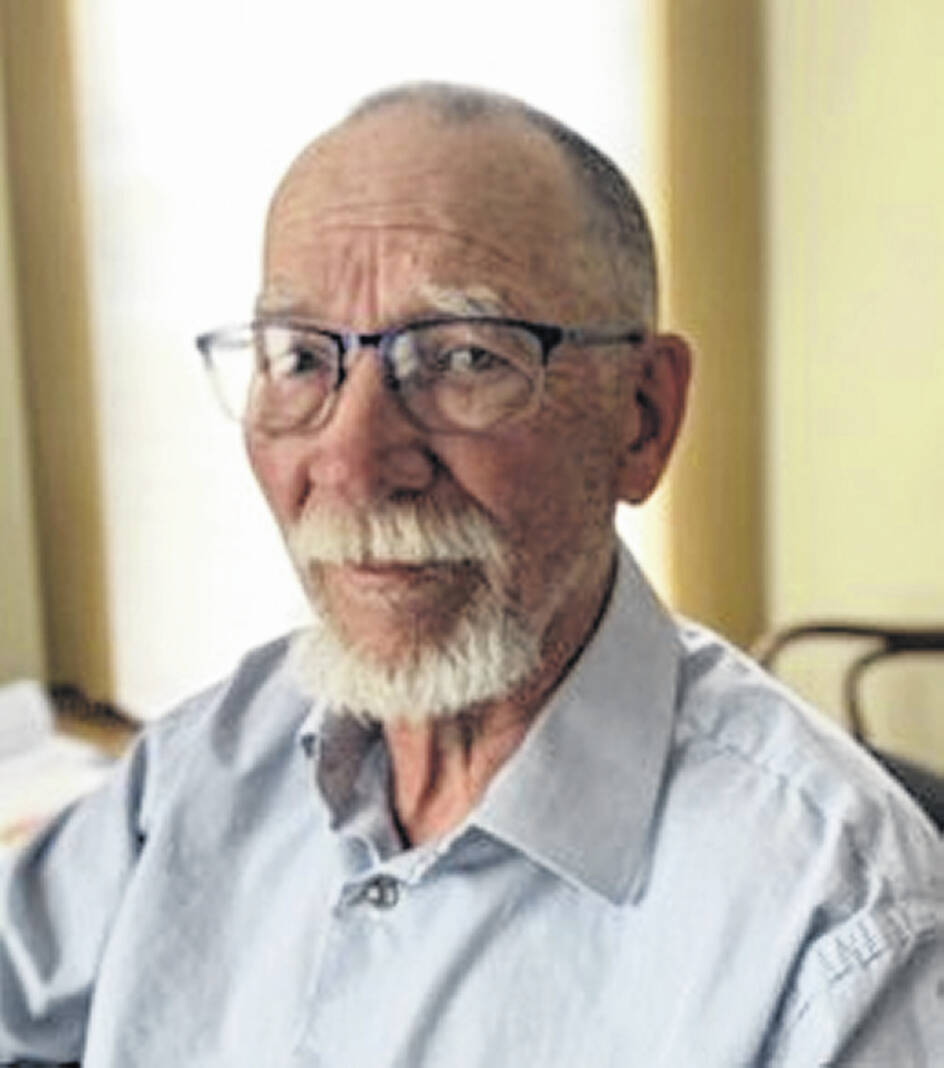
DeVilbiss

Page
By Doug Page
Guest columnist
For four decades the stories of children and families in crisis have flowed from and through her fingers.
Since 1984, Karen DeVilbiss has chronicled for referees, magistrates, probation officers and others the ups and downs of those who live amid poverty, crime, mental illness and/or addiction in Miami County.
First as a probation officer, then as a group home supervisor, a contract investigator for Children’s Services, a trainer for prospective foster families, and a coach for troubled families needing new skills to keep their children. The past 13 years she served as court appointed special advocate (CASA) supervisor and volunteer CASA.
“I met a lot of neat people and everything in-between,” DeVilbiss said.
She wrote home studies and reports for adoptions, foster care, as well as private custody cases. As a CASA supervisor, she directed volunteers as they investigated suspected cases of child abuse, neglect and dependency. Then DeVilbiss edited the CASA fact-based reports to help juvenile court magistrates make a decision as to the future of the children and the families.
“I know I have had a reputation of being picky about those reports, but it matters,” she said.
Miami County Juvenile Court Magistrate Rebecca Hall agrees.
“Those CASA reports make a big difference. It represents the child’s best interest. Without those CASA reports I would never hear the perspective of the child … it helps me make a better decision,” she said.
CASAs are appointed by the juvenile court and ordered to interview the child, their parents or guardians, teachers, physicians, therapists, counselors, Child Protective Services (CPS) workers, lawyers, neighbors, extended family, foster parents — anyone who is active in the child’s life. In addition, the CASA combs through the public record — law enforcement, courts, public health — and CPS, juvenile court and medical records.
Based on interviews and records, the CASA writes a report to the magistrate outlining the facts and what those interviewed had to say. The CASA then summarizes her or his findings and makes recommendations based on the facts.
It was DeVilbiss who reviewed the reports to ensure that no stone has been left unturned; that facts were presented clearly; that all had a voice; that the summation flowed from the facts; and that all concerned were treated fairly. Front and center of the report was what the child wanted.
“It is a great tool,” Hall said of the reports, “for the attorneys and caseworkers because they often hear only their clients’ side.”
Hall, who has heard abuse, neglect and dependency cases since 2008, recalled one abuse case where DeVilbiss was the CASA. The attorneys for the parents and caseworkers were ready to battle in court.
“After reading Karen’s report all sides agreed to follow her recommendations,” she said.
“We see kids from traumatic situations. With the right team of caseworker, the court and the CASA, sometimes the kids are able to succeed — to be successful, hold a job and eventually live on their own,” DeVilbiss said. “Sometimes, the parents succeed and the family is reunited when it looked hopeless.”
The CASA’s role does not end with the magistrate’s decision. As long as CPS is involved in the case, so is the CASA. They meet with the child at least once a month. They check to make sure the child is receiving all the help ordered by the court. They are sometimes the only adult who is a constant in the child’s life. Caseworkers change. Therapists change. Placements in foster care change. Guardians change. The CASA does not, barring medical or physical limitations, death or unforeseen circumstances.
“The only people who do this,” said Jill Henson, a former CASA colleague of DeVilbiss, “are the ones who have the heart to do this.”
“She has the commitment to making a difference in the lives of children,” said Nikki Scherck, CASA/GAL of Miami County executive director.
Scherck and others point to one case where DeVilbiss was the CASA for eight years, helping the child through the twists and turns toward adulthood.
“She has always been there,” the child later wrote. “She has been emotionally supportive (even when I did not agree). Even when things were stressful and difficult, she has been unwavering and encouraging. … She has always advocated.”
What Hall remembers best is DeVilbiss’ empathy.
“I have seen her in court on the verge of tears for the parents when it becomes evident in those cases where the parent is no longer able to care for the child. She has never lost her empathy, knowing that in many of those cases everyone is doing the best that they can.”
After four decades, DeVilbiss retired last month.
The writer is a CASA volunteer and retired reporter.


